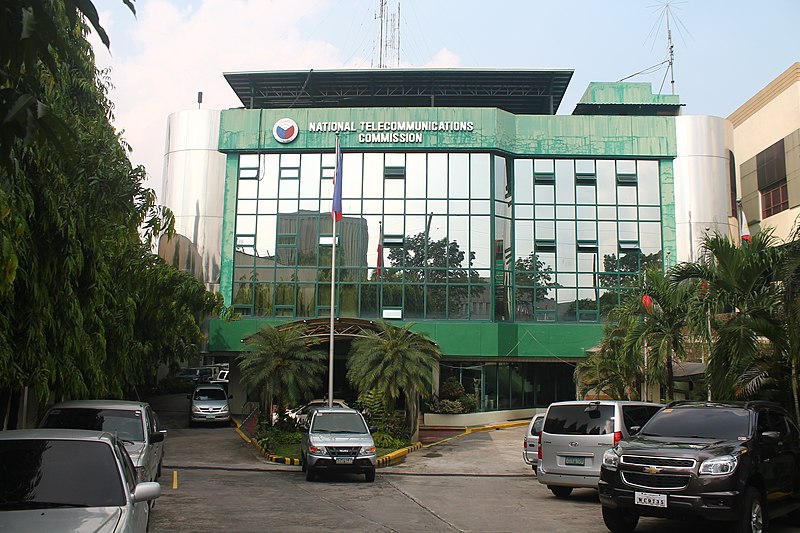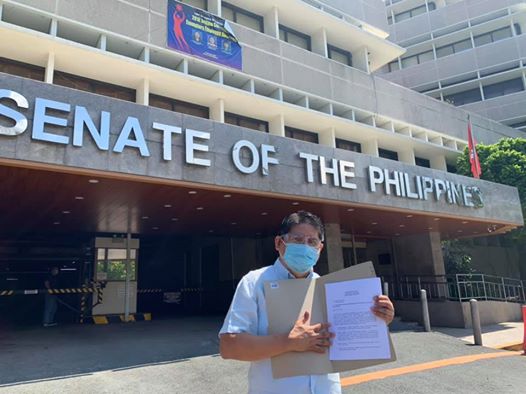The National Telecommunications Commission (NTC) did a 180-degree turn when it issued a cease and desist order against media network ABS-CBN from continuing its broadcast operations beyond the expiration of its franchise on May 4.
STATEMENT
In a press release on May 5, the NTC, the government agency in charge of regulating and supervising telecommunications services, announced that it “directed” ABS-CBN to:
“…stop operating its various TV and radio broadcasting stations nationwide ‘absent a valid Congressional Franchise as required by law’.”
Sources: ABS-CBN News Channel Official Twitter, Rappler Official Twitter, Inquirer.net Official Twitter, May 5, 2020
Citing the 1963 Radio Control Law, or Act 3846, the NTC said ABS-CBN no longer had a valid authority to operate upon the expiration of its 25-year franchise granted through Republic Act 7966 on March 30, 1995.
In an interview with DZMM, the broadcasting network’s radio arm which is also affected by the cease and desist order, NTC Deputy Commissioner Edgardo Cabarios said since there is no law renewing the expired franchise, ABS-CBN’s operations would have “no leg to stand on.”
FLIP-FLOP
Two months earlier, NTC Commissioner Gamaliel Cordoba said the agency will “follow” the advice of the Department of Justice (DOJ) and allow ABS-CBN to operate beyond May 4 while its application for renewal remains pending in Congress.
In a House legislative committee hearing on the renewal of the franchise on March 10, Cordoba, who was asked on the NTC’s position on the matter, said:
“May I assure this committee that, barring a gross violation of its franchise of the NTC rules and regulations, the NTC will follow the latest advice of the DOJ and let ABS-CBN continue operations based on equity.”
Source: House of the Representatives of the Philippines Facebook, Proceedings for the Committee Deliberation of the Application of ABS-CBN Corporation, March 10, 2020, watch from 37:41 to 37:51
The four-page NTC order did not cite any “gross violation” of its regulations committed by ABS-CBN.
In an interview with reporters during the Senate hearing on Feb. 24, Justice Secretary Menardo Guevarra said the network must be allowed to “continue the practice” because there are “gaps in the law,” thus the need for “equity considerations.” He called on Congress to define the rights and obligations of the franchisee during the interim between the expiration of the franchise and the legislative action on the pending franchise application.
The NTC’s May 5 cease and desist order came two days after the Office of the Solicitor General (OSG), an attached agency of the DOJ, “cautioned” the NTC against the issuance of such provisional authority in the absence of a “valid and existing franchise.”
The OSG further warned NTC commissioners that they “risk subjecting themselves to prosecution” under the Anti-Graft and Corrupt Practices Act should they issue a provisional authority to ABS-CBN and its affiliates.
But on May 4, Guevarra contradicted Solicitor General Jose Calida’s statement, saying the DOJ “stands by its position that there is sufficient equitable basis to allow broadcast entities to continue operating while the bills for the renewal of their franchise remain pending with Congress.”
ABS-CBN, in a statement, said it will comply with the NTC order and that it “trusts” the government will decide “with the best interest of the Filipino people in mind, recognizing ABS-CBN’s role and efforts in providing the latest news and information during these challenging times.”
The NTC order covers ABS-CBN Corporation — which is one of the biggest media conglomerates in the country — and its regional affiliates, including five AM and 18 FM radio stations, and 42 television stations.
The ABS-CBN News Channel, or ANC, and the network’s official news website, news.abs-cbn.com, will remain operational because they are not covered by the franchise.
BACKSTORY
A franchise is a “privilege” granted by Congress to broadcast entities, such as ABS-CBN, to engage in a “certain type of telecommunications service.” (See VERA FILES FACT SHEET: The ABS-CBN franchise conundrum)
Based on a 2003 Supreme Court decision, the power to issue and extend franchises — including provisional permits — for operating radio and television broadcasting stations lies with Congress, not the NTC.
However, former Chief Justice Reynato Puno, who penned the Supreme Court decision, said in a Feb. 25 media interview that a concurrent resolution by both houses of Congress, or a resolution from the House of Representatives, granting ABS-CBN a provisional permit would suffice to allow it to continue airing pending legislative action on the franchise application.
The next day, House Committee on Legislative Franchises Chair Franz Alvarez, in a letter concurred in by Speaker Alan Peter Cayetano, urged the NTC to issue to ABS-CBN Corporation and its subsidiaries and affiliates:
“…provisional authority to operate effective May 4, 2020 until such time that the House of Representatives/Congress has made a decision on its (ABS-CBN) application.”
The House, however, did not adopt a resolution on the matter.
The Senate adopted on March 4 a resolution “authorizing” the NTC to issue a provisional authority to the network “under such terms and conditions as the NTC may deem necessary” until Congress decides on the franchise renewal bills.
Franchise bills are considered local bills, which, under Sec. 24, Art. VI of the Constitution, must “originate exclusively in the House of Representatives.” The Senate, however, may “propose or concur with amendments.”




